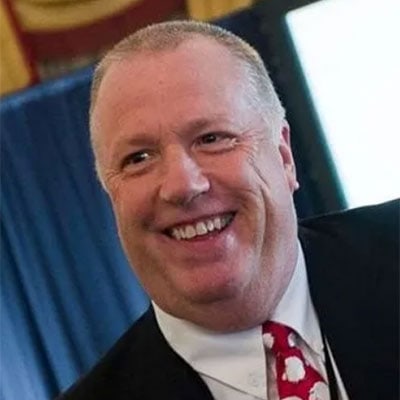GameStop, a sleepy retail chain specializing in video games, has become one of America’s hottest companies. Trading in its shares has been the dominant business story of the week.
The story itself is simple. GameStop’s business has not been doing well. Financial analysts predicted a bleak future. Several hedge funds—among America’s largest and most sophisticated financial players—”shorted” the stock, meaning that they sold shares they didn’t own.
A short sale, however, is only half of a transaction. At some point the short-sellers must hand over the shares they sold. If they win their bet, they’ll be able to buy those shares later at a lower price and pocket the difference; if they lose, they’ll have to pay a higher price and absorb the loss.
Some amateur day traders noticed the obvious: those sophisticated short sellers would have to buy as many shares as they’d shorted. The amateurs devised a plan to bid up GameStop stock until the sophisticates felt compelled to close out their positions at inflated prices.
Their plan worked so well that it hurt hedge funds (and their investors), rattled Wall Street and dominated the news. That’s all fine—even expected. It happens whenever a new financial strategy arrives with a splash.
What’s not fine is that the elites then changed the rules mid-game in response to the sheer audacity of amateurs trouncing the professionals. Investment-focused chat rooms shut out the communications that day traders need. Exchanges halted trades of GameStop stock. Trading apps froze out their users. Prominent experts began proposing new regulations to strangle this small-player strategy before it becomes widespread.
The hypocrisy is beyond breathtaking. The implications of Wall Street’s reaction, taken to their logical conclusion, would end the financial sector as we know it.
Let’s backtrack further, all the way to first principles. If we’re concerned about amateur traders ending the financial sector, it might be worth wondering why we have a financial sector in the first place. The answer is hardly obvious; arguments about the inherent unfairness of finance are commonplace among socialists and populists alike.
Finance exists to lubricate the economy. It ensures that resources (including capital) get into the hands of those who can use them most productively. That’s hardly an easy task. Performing it well requires identifying the resource, assessing competing proposals, selecting a winner, cutting a deal between the current owner and that winner and transporting the resource. Financial sectors standardize these tasks to make them easy and cheap. That’s an extremely valuable service.
Most of the people working in finance, however, don’t do any of those things. They trade commodities, equities and derivatives they don’t understand, couldn’t use and hope never to encounter in physical form. Their participation in the financial system helps lubricate the lubricant. Much of the venom hurled at Wall Street stems from the belief that traders divorced from underlying resources are compensated far beyond any value they add to the overall economy. In other words, they’re exploiting the system.
Just what “system” is it that they’re exploiting? The further financial transactions move from the underlying resources, the greater their reliance on the psychology of other investors. Will a company perform better or worse than other investors expect? Will collective thinking about future interest rates change? Are people guessing incorrectly about a potential near-term merger?
These sorts of questions lead to “information asymmetries.” What sets financial professionals apart from amateurs is their access to potentially relevant information and their ability to combine that information to forecast crowd psychology. In recent decades, many of Wall Street’s most successful players even automated data collection and calculation to develop sophisticated trading algorithms, thereby enhancing their advantage.
With GameStop, amateurs exploited an information asymmetry against these sophisticated experts. With the tables thus turned, America’s financial expert class began railing against the unfairness of losing its hard-earned money to bumpkins playing with numbers and psychology divorced from underlying value. They have a point, but it’s probably not the point they want to make. When Wall Street begins to sound like Occupy Wall Street, trouble lies ahead.
By the time you read this column, the GameStop saga may have already moved on. Its central message, however, is unchanged.
We need the components of our financial system involved in the transfer of resources. Anything else is expendable. A financial sector that protects sophisticated elites while savaging small amateurs is politically unsustainable. It’s time for America’s elite financial sophisticates to recall what they like to remind the rest of us: When you’re trading on crowd psychology, sometimes you win and sometimes you lose. If you’re going to cry after every loss, get out of the game. Otherwise, your crying may cost you the game you so love to play.
Source: Newsweek




